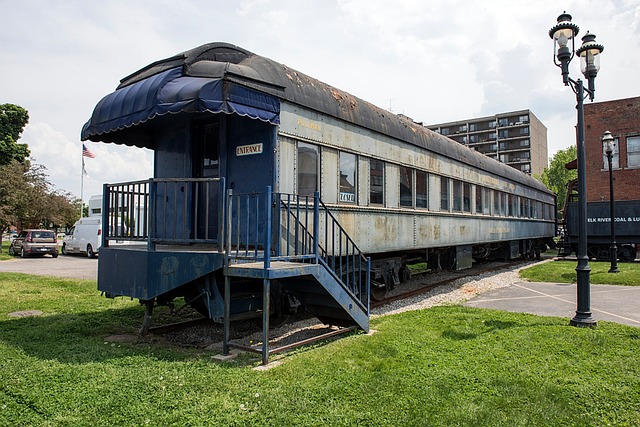The West Virginia Do Not Call Registry empowers Huntington residents to block unwanted telemarketing calls, offering both online and mail registration methods. While some residents doubt its effectiveness due to persistent calls and perceived loopholes, the registry is strictly enforced by regulatory bodies with legal recourse available through the attorney general's office or specialized lawyers. These professionals guide residents on rights, resolve disputes, and ensure businesses comply with Do Not Call laws, preventing penalties. Enhancements like increased public awareness, stricter penalties, and stronger enforcement are recommended to improve the registry's effectiveness. For legal support, a lawyer specializing in West Virginia's Do Not Call Laws is invaluable for both residents and businesses.
Huntington residents have expressed concerns about the effectiveness of West Virginia’s Do Not Call Registry, raising questions about its ability to curb unwanted telemarketing calls. This article delves into these worries, exploring common resident complaints and examining the legal protections afforded by the registry. We discuss the role a lawyer for Do Not Call Laws in West Virginia can play in navigating these regulations and propose potential solutions to address lingering concerns among Huntington’s citizens.
Understanding the Do Not Call Registry in West Virginia
The Do Not Call Registry in West Virginia is a state-mandated program designed to protect residents from unwanted telemarketing calls. The registry allows individuals to opt-out of receiving sales or promotional phone calls, providing much-needed relief from persistent and often annoying marketing efforts. Residents can register their phone numbers online or by mail, ensuring they receive fewer unwanted calls. This measure is particularly relevant for Huntington residents, who, like many others, value their privacy and peace of mind.
In West Virginia, the registry is actively monitored and enforced by regulatory bodies. If a registered number receives a prohibited call, victims can file complaints with the state’s attorney general’s office or consult a lawyer specializing in Do Not Call laws to explore legal options. This dual approach ensures that both residents and law enforcement are equipped to combat violations, making it easier for Huntington citizens to exercise their rights and enjoy a quieter, more secure communication environment.
Common Concerns of Huntington Residents About the Registry
Many Huntington residents have expressed their doubts about the actual effectiveness of the Do Not Call Registry in West Virginia. A common concern is that despite registering, they still receive numerous unwanted calls from telemarketers and sales representatives. Some residents feel that the registry is merely a “hint” for call centers to ignore rather than a strict regulation, leading to frustration and a sense of powerlessness against persistent callers.
Another worry frequently voiced involves the potential loopholes in the system. With evolving call technologies, it’s not uncommon for automated or prerecorded calls to bypass the registry, leaving residents feeling their privacy is still at risk. Additionally, some individuals question the enforcement mechanisms in place, suggesting that stricter penalties and better monitoring are needed to make the Do Not Call Registry a more viable solution for preventing unwanted telephone solicitations. A lawyer specializing in Do Not Call Laws in West Virginia can offer guidance on navigating these complexities and protecting residents’ rights.
Legal Aspects and Protections for Consumers
In West Virginia, consumers have legal protections under the Do Not Call laws, which are designed to reduce unwanted telemarketing calls. If a resident has registered their number on the state’s official Do Not Call list, businesses and telemarketers are prohibited from contacting them for promotional purposes. This regulation is enforced by the West Virginia Division of Labor, ensuring that residents’ privacy rights are respected.
If a Huntington resident feels their concerns regarding the effectiveness of the Do Not Call Registry are valid, they may consider consulting a lawyer specializing in Do Not Call Laws. A legal professional can guide them through their rights and options, helping to navigate any disputes or misunderstandings with telemarketers. They can also provide advice on how to ensure compliance with these laws to maintain a peaceful and undisturbed home environment.
The Role of a Lawyer in Navigating Do Not Call Laws
When it comes to understanding and navigating the complexities of Do Not Call laws in West Virginia, a lawyer plays a crucial role for residents and businesses alike. These laws are designed to protect consumers from unwanted telemarketing calls, but they can be intricate and challenging to decipher. A legal professional specialised in this area can offer invaluable guidance and support to Huntington residents concerned about their rights and responsibilities.
They can help individuals register their numbers on the national Do Not Call Registry effectively, ensuring compliance with state regulations. Moreover, lawyers can assist in identifying legitimate calls from scammers, as well as provide strategies to handle persistent unwanted callers. For businesses, a lawyer for Do Not Call Laws West Virginia can ensure marketing practices adhere to legal requirements, protecting the company from potential penalties and lawsuits related to telemarketing activities.
Potential Solutions and Improvements to Address Resident Concerns
Huntington residents’ concerns about the effectiveness of the Do Not Call Registry highlight a need for potential solutions and improvements. One suggested enhancement is to increase public awareness about the registry’s benefits and proper usage, ensuring that individuals understand how to register and enforce their preferences. This can be achieved through targeted campaigns involving local media and community organizations, educating residents on their rights and responsibilities under West Virginia’s Do Not Call Laws.
Additionally, implementing stricter penalties for violators could deter unwanted calls. A lawyer specializing in Do Not Call Laws in West Virginia can play a crucial role in advocating for stronger enforcement mechanisms. They can assist in crafting legislation that provides more teeth to the registry, ensuring that residents’ privacy is respected and protected. Such measures, combined with regular reviews and updates of the registry system, can significantly improve its overall effectiveness.






